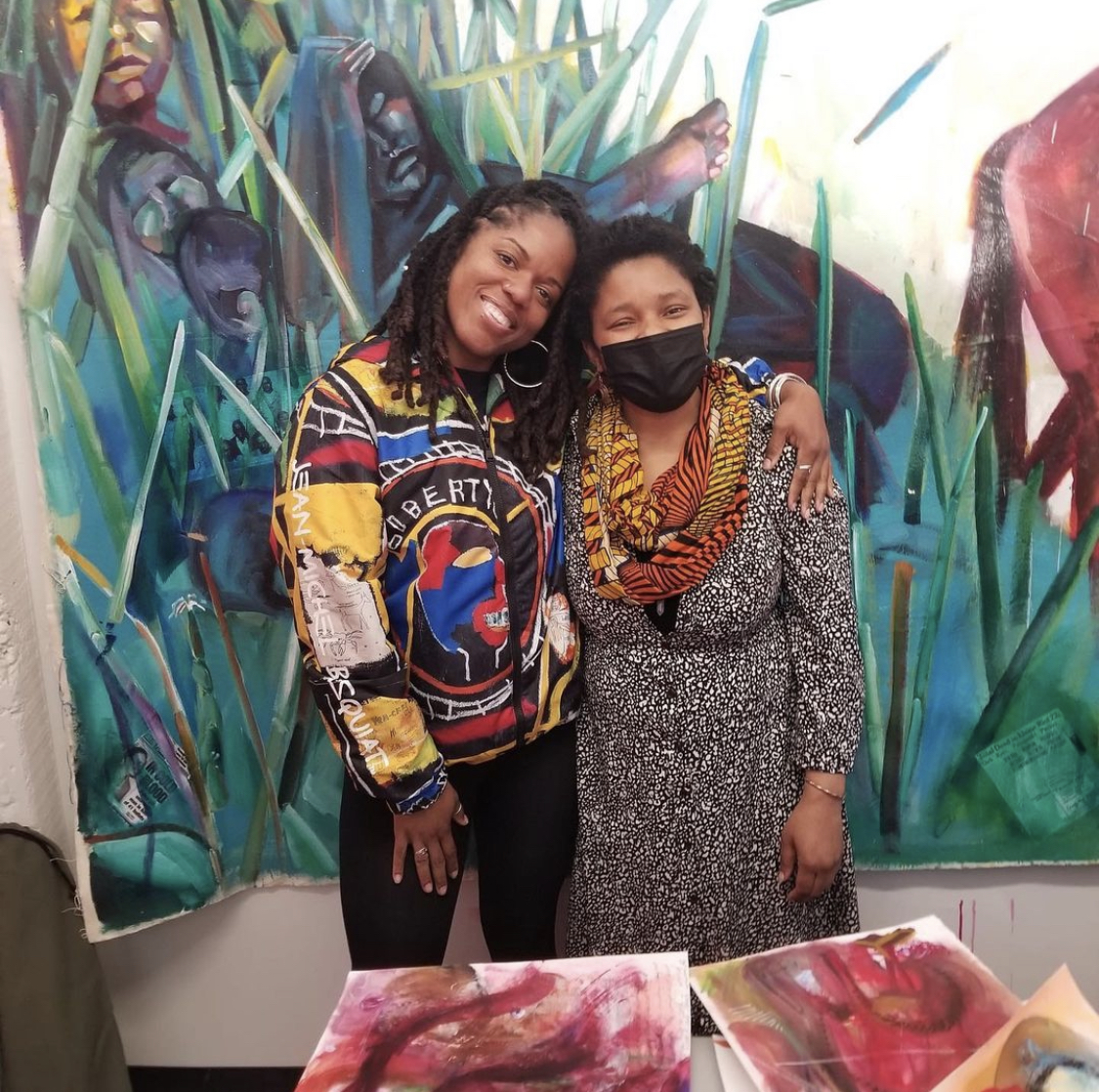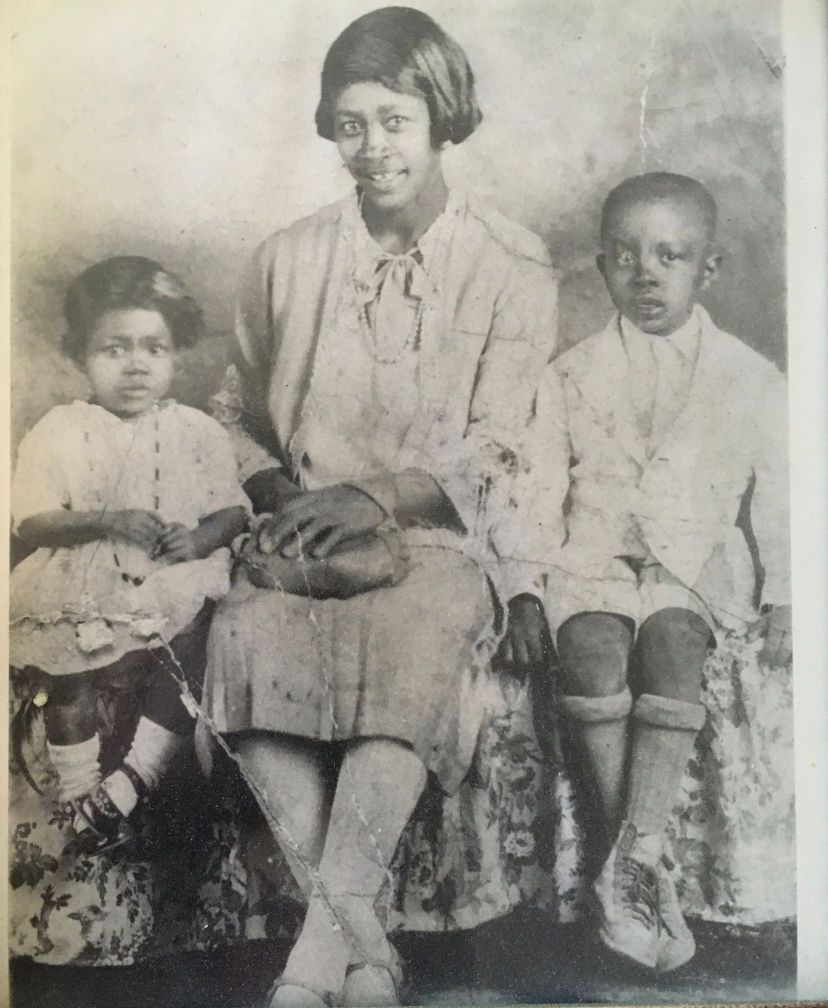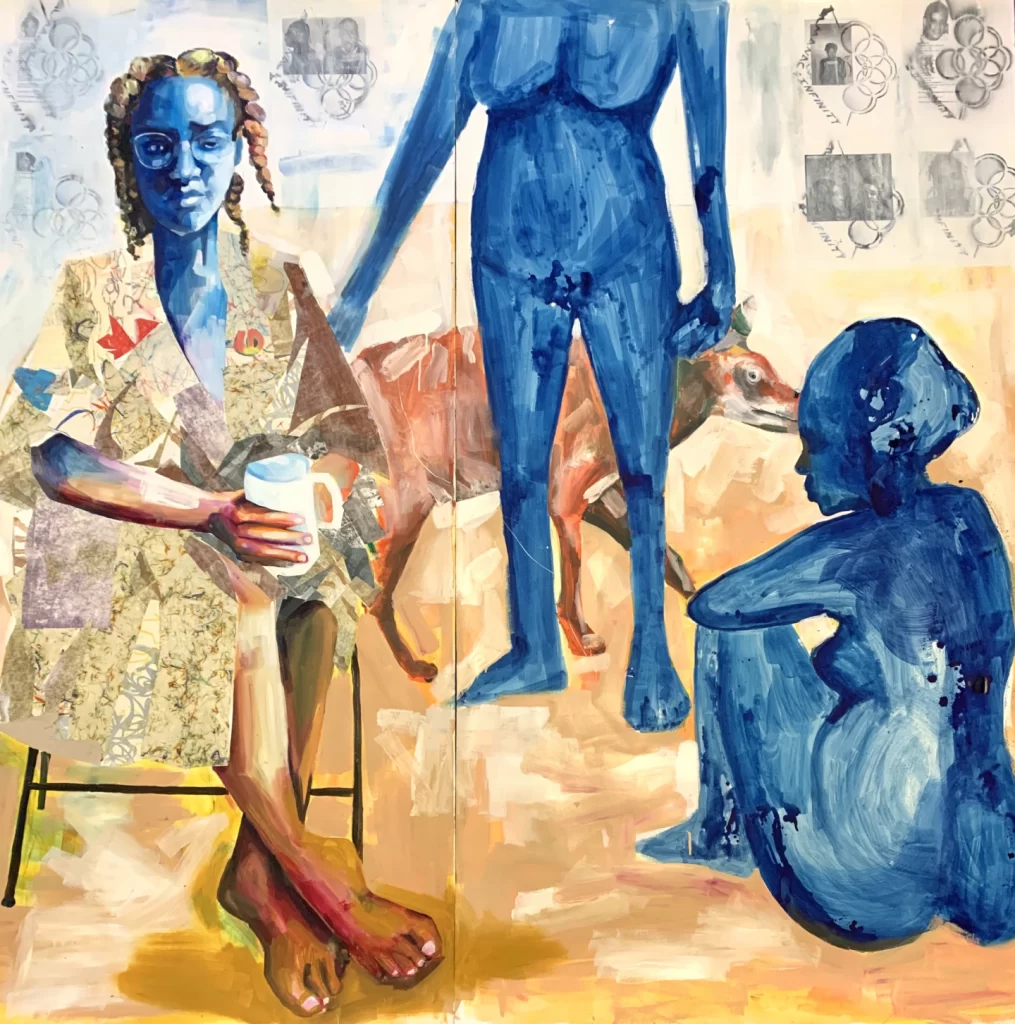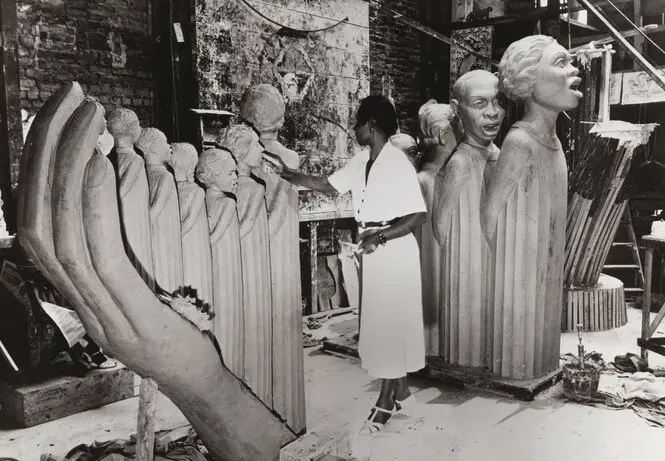In Honor of the Children of Folks Who Migrate: An Interview with Angela Davis Johnson, Pt. 1

“I’m from a lot of spaces, because my father was in the military.
But I claim East Arkansas because that’s where my family is from. It’s the last place my grandmother lived. And I had the good fortune of living back in Arkansas when I was 14, to be able to revitalize my grandmother’s garden.
I say that, too, because it’s so important to understand me as an artist. My work is rooted in ancestral veneration and carrying on family stories. So I’m always listening for ways of understanding how family life and Black folks’ traditions impact our walk through life…
“One of the things that I noticed about myself is that I can’t sit still. I’m always on the move.”

Angela’s grandmother (left), great-grandmother (middle), and uncle (right)
“And I wanted to understand where that came from,” Angela said. “My great-grandmother was constantly on the move. She had a hot foot.
While living in Arkansas, a white man told her that we have oil on our land. She inadvertently signed away our family’s land, and she and all her children were put out. She left from there to Mississippi to Florida to Chicago, then back to Mississippi. She was in a constant loop of migratory movements, and it’s made me reflect on how I’m in a constant loop of migratory movement,” Angela explained.
“I’m here in Atlanta, claim Arkansas, but I’m always in New Orleans. And right now I’m building in Philadelphia with my partner. So it’s like this movement that I’m on and wanting to recognize and understand the power of that, also to be able to understand how it may be informed by trauma as well as pleasure. So it’s like a tension that I’m trying to uncover through this body of work.”
Angela named that body of work HOTFOOT.

“Murmuration Prayer” | Angela Davis Johnson | 2017
“HOTFOOT is a working definition of what it means to be the children of folks who migrate.” —Angela Davis Johnson
Not too long ago, I took a quilting class at the Beach Institute in Savannah led by Ms. Tina Hicks. Gathered around a table of five women, including me and my daughter, Ms. Tina shared that her father would tell her, “You so free ’til you fool. When you gon’ quit carrying ya clothes on ya back?”
Over the years, when I heard the term HOTFOOT, it was either describing somebody who can’t keep shoes on they feet to save their life or somebody moving around too much for their own good. I wanted to know if Angela grew up hearing it used to shame folk.
She did.

“Can’t Pour from an Empty Cup” | Angela Davis Johnson | 2020
“Because it’s like someone who can’t sit still,” she said.
“But you can reframe it as a point of, yes, it could be that and I think it is that. And I think also there’s an aspect of curiosity, dream-making, world-building, and the strength of movement.
I think about mental-emotional movement, how we crawl over terrains of growth in things that we have to navigate as Black folks living on this land and how we’re able to do that.
We do it through our music. I feel like that’s a migration. It feels like a hot footed behavior to be able to dance our way through something. I’m always interested in trauma release exercises. Whether we’re in church catching the spirit or we’re in secular spaces twerking, these have been practices and ways of moving through the mundanity and the present nature that this space can be, and so I’m tying that to hotfootedness.”
Angela brought up the Great Migration, where six million Black folk left the South and headed North and out West between 1916-1970. Augusta Savage, who moved from Florida to New York in 1921, once said “I was a Leap Year baby, and it seems to me that I have been leaping ever since.”

Augusta Savage working on her sculpture “Lift Every Voice and Sing.” It was considered temporary artwork and was destroyed after the event (Wikipedia).
“We’re from people from the Great Migration,” Angela added.
“And I’m trying to parse through what it can look like and what it can mean because symbolism is important to my work. And HOTFOOT doesn’t stand alone. This is a part of a work that I’m doing with my collaborator and partner muthi reed, a poet and media maker from Philadelphia, whose parents and grandparents were a part of the Great Migration as well.
We’re doing this piece called ‘Hold On Devotion to HOTFOOT Living,’ which is moving up and down the eastern seaboard, where we’re connecting with family and friends in community and listening in and carving out a Black Queer methodology to understand how we’ve been able to not only survive but ways that we’re building worlds within the practices that have been passed down to us.
So that’s what HOTFOOT is a part of. It’s in communication and conversation with ancestors, with ourselves, and our beings in the ways that we’re moving now.”
—
Part 2 of this interview releases this Friday. Get it sent to your email by signing up for the newsletter. Click here to do that.
This interview was originally posted on BlackArtinAmerica.com in April 2022. I changed the structure and wording for Krak Teet. None of Angela’s words were changed though. Only mine. The original post on BAIA also explains how I came to interview Angela in the first place.


One thought on “In Honor of the Children of Folks Who Migrate: An Interview with Angela Davis Johnson, Pt. 1”